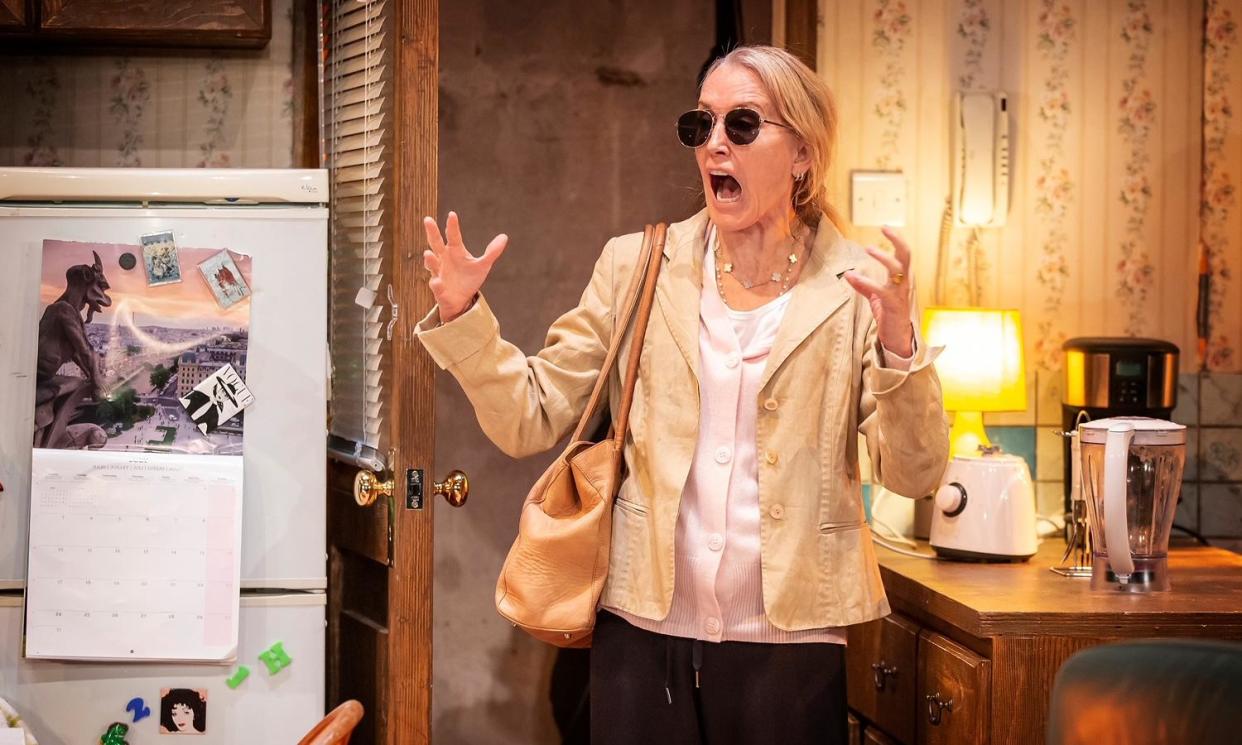Hir review – Felicity Huffman wreaks havoc in Taylor Mac’s black comedy

Chaos reigns. Every inch of Paige’s home is a domestic dumping ground. This rich and messy revival of Taylor Mac’s black comedy is a story of debris, considering where our trauma settles inside us and what our violence leaves behind.
With her husband Arnold (Simon Startin) initially incapacitated by a stroke and now deliberately subdued by drugs, Paige (Felicity Huffman) eradicates the order and violence he used to hold over her home. Cleaning is a thing of the past. She wants to go to galleries instead. As Arnold cowers in a corner, she belittles him, sprays him with water when he misbehaves, dresses him in emasculating nighties. She does all this for fun, revenge and safety. Huffman is beautifully cast, radiating a determined indifference. “We will not rewrite history with pity,” she warns her children icily.
Around Paige, Mac explodes ideas of the home. Questions of patriarchy and patriotism are hurled around Ceci Calf’s raggedy cardboard box set; a starter home they never moved on from. Amid the mess, their children push in different directions: eldest son Isaac (Steffan Cennydd), a disgraced soldier who reaches for his father’s brutality when everything else falls away, and his sibling Max (Thalía Dudek), a precocious trans-masc teenager (“Hir” is a reference to Max’s pronouns) who aches for somewhere to fit in. The dynamics between them fluctuate as the characters’ complexities are more comfortable in comedy, with some subtleties lost in spurts of fury.
With each one urgent for a feeling of belonging – through gender, the military, art, an affair – the space hums with desperation. What really shines onstage is how Max’s rejection of normative narratives cracks open the world for Paige, offering a vision for a better world. Mac’s absurdist story is richly complex, its characters desperate and flawed.
But as the script sprawls in so many directions, with conceptual conversations sometimes overriding the drama, Steven Kunis’s production struggles to determine its focus. Huffman remains the production’s centrifugal force, her deep-seated distress simmering just below her delighted enlightenment.
At Park theatre, London, until 16 March


